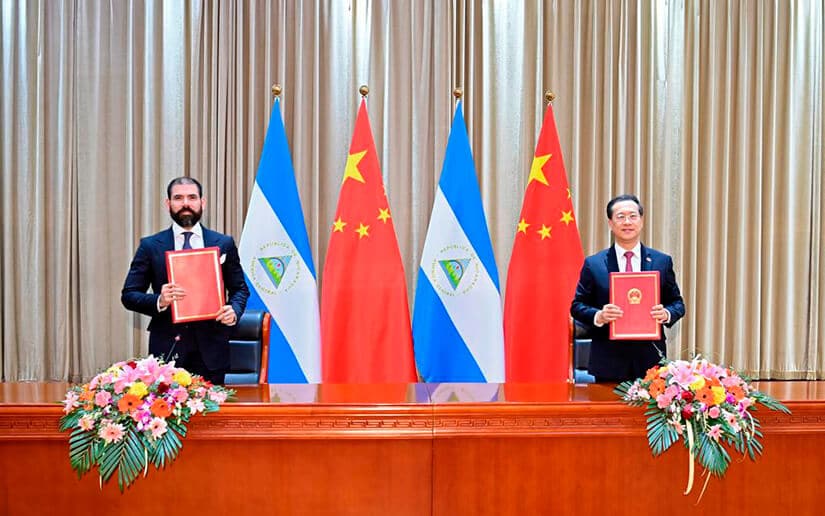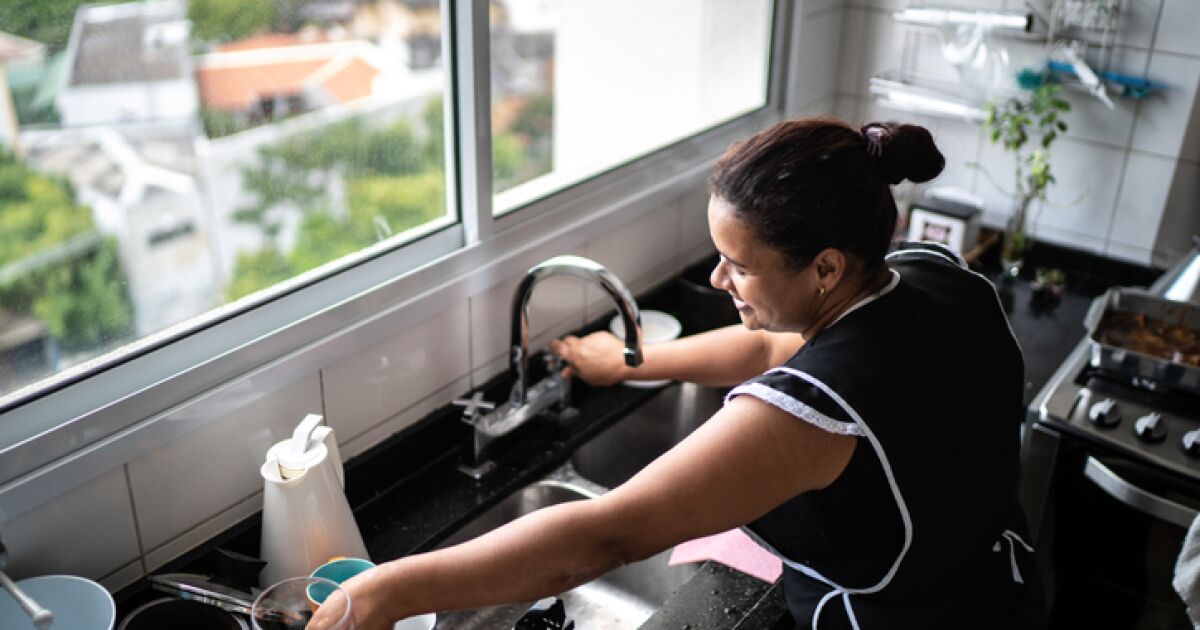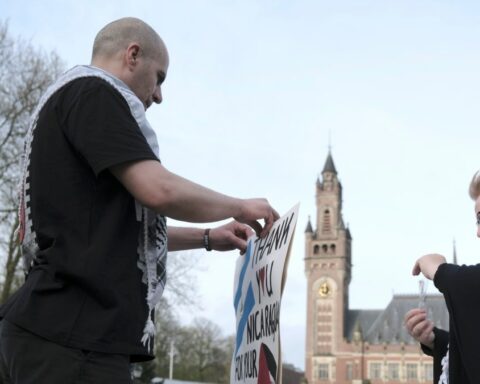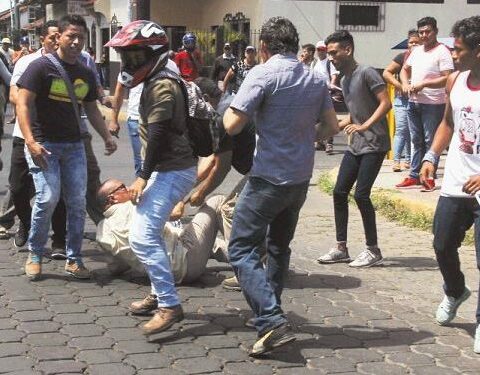Last week, a short statement read by Foreign Minister Denis Moncada, reported that Nicaragua was bowing to the Chinese view that Taiwan is just a rebel province, as an excuse and explanation for migrate diplomatic relations from Taipei to Beijing.
And although the reasons for making such a decision are geopolitical and economic, two experts consulted by CONFIDENTIAL, see little chance that Ortega and the Nicaraguan economy will particularly benefit from this change.
“We will have to wait to know what was offered and what was negotiated“Invites the Nicaraguan journalist Alberto Alemán, an analyst on Asia-Pacific affairs, who rules out that there are ideological reasons, because “who could believe that Ortega is a revolutionary or a leftist? The ideological factor is not of great importance in this, despite what Ortega says. It is only rhetoric ”, sentence.
The Salvadoran Napoleón Campos, a specialist in international issues, opts for economics rather than politics, wondering “at the moment, what good is an ally like Daniel Ortega for China?” accused of having committed electoral fraud, in addition to violating human rights and the rule of law.
Both experts believe that in addition to challenging the United States, Ortega is also looking for options given the possibility that The United States enforces the Reborn Act, excluding Nicaragua from the free trade agreement (Cafta), and for Europe to do the same with the Association Agreement, which would make Nicaraguan exports to both markets more expensive.
The difficult Chinese FTA
The Nicaraguan notes that “with the Renacer Law, the United States could impose tougher sanctions, representing significant economic and financial isolation; could exclude Nicaragua from Cafta, with severe consequences for our economy, because the United States is our main market and main commercial partner ”.
Given the does not plan to back down in the continuation of his dictatorial regime, “Ortega has anticipated this movement and aims to obtain cooperation benefits at least similar to those he obtained from Taiwan. It also wants to obtain important commercial agreements that will help it sell part of the Nicaraguan production in China, and also seek investment, “he adds.
The Salvadoran points out that “if someone bets that China will be able to compensate for the sanctions on Cafta, they are totally wrong”, because it is not easy to redirect overnight a change in the destination of Nicaraguan exports, from the United States to China, and there would be to see how the Nicaraguan people would react to this new economic disaster.
Comparing with the economic benefits received by the countries that made the leap before Nicaragua, Campos details that “except for the ethical exports of technology, those of no country have changed by allying with China … that Nicaragua is going to reorient its export market to the United States. United by that of the popular China, it is another Chinese story ”, sentence.
Campos also points out that the pandemic has produced a relocation of investments that are now in China, Vietnam, Indonesia or Malaysia, because businessmen – and politicians – realized that producing in Asia will be cheaper, but it resulted in chaos, when the logistics crisis arose, so now they will look for how to repatriate the companies to their own territory, or to closer locations.
Due to its proximity, Mexico could be the big winner, since it is convenient to develop local economies, to encourage democracy and development, while disincentivizing migration, which makes it more difficult for the Chinese market or Chinese investments to go to be an economic engine for Central America or any of its countries.
“It is not true that China will bring large-scale investment flows, and where they have, in some of the large South American economies, it is because there were great resources that they could take advantage of,” Campos clarifies.
Alemán points out that he has “serious doubts that China wants to assume the role of petty cash for populist-type projects, and it remains to be seen if it will match development cooperation.”
Campos recalls that after so many years of relationship with Costa Rica, and more recently, with El Salvador, “it has been shown that China is a very limited oxygen tank”, and although it is reasonable that Ortega has looked for them at this time when he has the water up to his neck, what he did was enter a kind of labyrinth ”.
Doing business with China
Alemán explains that “despite what the regime officials say, it is not very easy to do business with China”, firstly, because there are a series of technical and even phytosanitary obstacles, which make it difficult to access.
It is also unrealistic to expect Nicaraguan companies to settle in mainland China, because “the Chinese prefer foreign companies to have local partners, and there are far fewer incentives for foreign companies than there were 20 or 30 years ago,” he added. .
If the idea is to export, “beyond a few traditional raw materials, I do not know what we can offer: we do not produce soy, oil, or any mineral, nor the industrial products that interest China … they are interested in selling us their industrial products ”, he adds.
For all this, Alemán insists that he sees “with great skepticism” the ability of Nicaraguan companies to take advantage of a Chinese trade opening. “It is not easy, nor will the benefits of that access be seen immediately or tangibly, because it is a difficult market, in addition, Nicaraguan companies have no idea of the peculiarities of the Chinese market, where business is not done from the same so with the United States ”.
To the Nicaraguan Joe Henry Thompson, an expert on Central American integration, it seems “normal that broke up with taiwan“Considering the size of the Chinese market, and does not rule out that in mid-2022, Central America will seek a free trade agreement with mainland China, if they agree to negotiate it with four of the six nations; with the six, even if Honduras and Guatemala remain allies of Taipei, or if they will demand that the entire region surrender united to them.
Thompson recalls that if the region has a free trade agreement with Korea, it is because “it had been proposed to the Council of Ministers of Economic Integration (Comieco) negotiate an FTA with China, but there was no consensus, because several countries were still with Taiwan ”.
Although there are those who argue that not even a united Central America has the capacity to supply markets as rich and extensive as those in Asia, Thompson emphasizes that having signed a trade agreement with Korea allows Nicaragua to produce, through the free zone regime, “any quantity of garments , with fabric from anywhere in the world, which can enter Korea directly, with a reduction from 15% to 22% of the tariffs that would have to be paid ”.
In the same way that the country can import Korean machinery to improve production capacity by employing better technology at better prices, China can also become another supplier, because it produces vehicles, fertilizers, and a host of other products.
Another option is that they decide to manufacture technology in Nicaragua, and that the country do what they did: learn how they learned it from other countries, and then transfer knowledge from their engineers to ours, which in the long run , “It also makes us attractive to other investors,” he explains.
As long as there is business, they will stay
From the perspective of Nicaraguan companies that have Taiwanese DNA, the change of one country — and one regime — for another should not represent major changes in trade relations between countries.
This is how Gilberto Wong, president of the Nicaraguan Taiwanese Business Chamber (Cetainic), explains it, saying that “I do not believe that the breakdown of diplomatic relations affects bilateral trade”, and while the free trade agreement with Taiwan is in force, “no I see reason not to continue promoting exports of meat, seafood, coffee, junk, sesame, beans, sugar, etc. ”.
Wong also assures that although it is true, in the past some Taiwanese companies went to Vietnam and Cambodia for economic convenience, there is nothing that makes him think that the three that remain in the country under a free zone regime (Formosa Textil, China Unida and Roo Hsing), are not going to continue operating normally, as long as the Cafta exists, which offers them advantages to export to the United States.
Although it is still very premature, Wong points out that he does not know that there are investments that are in danger due to this rupture: neither from the three free zone companies, nor from the group that operates the Crowne Plaza Hotel, plus the convention center and the Mall, which is a large Taiwanese business conglomerate.
“They have not manifested themselves nor do I think they will leave: as long as they have business opportunities, they will continue to do so. When Panama and El Salvador broke relations with Taiwan, the companies that were there stayed, so as long as it does not affect the commercial, or the Cafta, they will continue to operate in Nicaragua ”, he emphasizes.
Those who came out winning are the citizens of that nationality who make up the Nicaraguan Chinese Association. Iván Quant, president of the entity, assures that “we have not analyzed it, because it is a very recent decision”, and since theirs is a cultural activity, he anticipated that “when there is a new embassy, we will approach them to continue our work ”, optimistic because“ before we had to travel to Panama, Mexico or Costa Rica to request a visa, but now we will be able to do the paperwork here ”.








